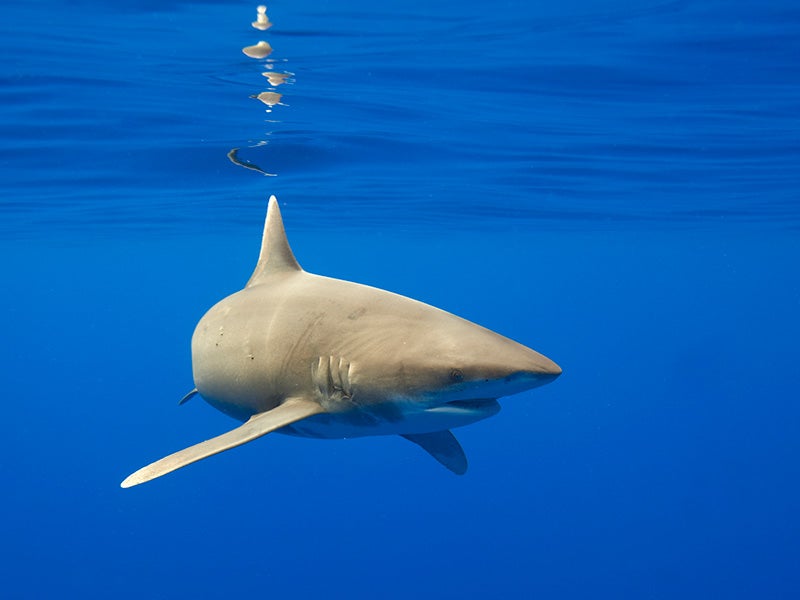An Overfished Shark Species Will Now Finally Get The Protection It Needs In The Pacific
Groups agree to stay a lawsuit against the federal government
Contact
In response to a lawsuit brought by Earthjustice on behalf of a local conservation group and a Native Hawaiian cultural practitioner, the federal government has taken initial steps to protect a dwindling shark species that has roamed the oceans for millions of years. The parties have reached an agreement to halt further legal action in the case, as long as the government follows through on promised actions to formally recognize the species as “overfished.”
In April, the Conservation Council for Hawai‘i and Michael Nakachi filed a lawsuit to compel the National Marine Fisheries Service to take action to protect oceanic whitetip sharks. Although the Fisheries Service had informally recognized the imperiled status of the population for years and listed the species as threatened under the Endangered Species Act, it had not yet declared the population to be “overfished,” a designation that triggers protective action.
In response to the lawsuit, the Fisheries Service took quick action to remedy its unlawful behavior. A month after the lawsuit was filed, the Fisheries Service sent a letter to the Western Pacific Fishery Management Council (WESPAC), informing the WESPAC that the sharks are overfished and directing WESPAC to develop a plan to protect the population internationally. WESPAC has a year to make recommendations on how best to reduce shark mortalities in international fisheries.
“The manō (shark) has great cultural significance and is part of my own family as an ‘aumakua (protector),” said plaintiff Michael Nakachi. “These shark deaths are preventable. The government’s action thus far is a welcome first step to ensure the survival of this sacred animal that has roamed in our waters for millions of years.”
“We wish the officials who oversee marine species would have taken this step years ago to prevent needless shark deaths,” said Moana Bjur, Executive Director of the Conservation Council for Hawai’i. “We will be now be watching closely to make sure WESPAC follows through on its promises and the regulators come up with a plan to restore oceanic whitetip sharks to a healthy population.”
Listed as threatened under the Endangered Species Act since 2018, thousands of oceanic whitetip sharks die as bycatch every year because they are accidentally caught in nets, lines, or other gear meant to catch different species — such as tuna and swordfish — in the waters off Hawai‘i and American Samoa. Between 2013 and 2017, domestic and international longliners and purse seiners operating in the Pacific Ocean captured a total of nearly 300,000 oceanic whitetip sharks as bycatch. Scientists estimate that in the Pacific Ocean, oceanic whitetip populations have declined 80-95% since the mid-1990s, in large part because they are caught as bycatch. The government has yet to formally publish the oceanic whitetip shark’s designation as overfished, but anticipates doing so in the coming months.
“We’re glad that our legal action is forcing the Fisheries Service to declare the population overfished and that WESPAC must now take long-overdue action to protect the species,” said Earthjustice attorney Brettny Hardy. “The whitetip shark population is on a steep decline, headed to extinction if managers do not constrain the bycatch killing these amazing animals. That’s unacceptable, and that’s why we filed suit.”

Additional Resources
About Earthjustice
Earthjustice is the premier nonprofit environmental law organization. We wield the power of law and the strength of partnership to protect people's health, to preserve magnificent places and wildlife, to advance clean energy, and to combat climate change. We are here because the earth needs a good lawyer.